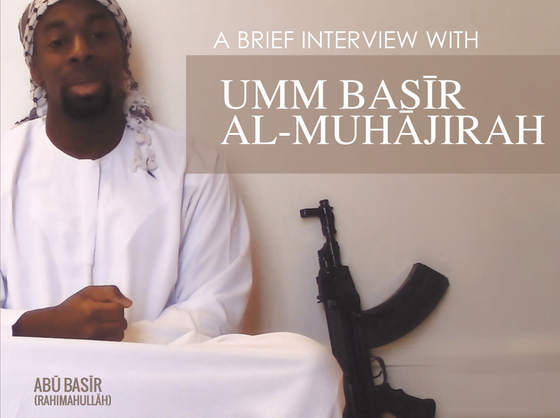The Islamic State released the seventh issue of its English-language magazine, Dabiq, this week. This issue includes an interview with Hayat Boumediene, the girlfriend of Amedy Coulibaly, the jihadist who killed a policewoman and attacked a kosher market in eastern Paris on Jan. 9.
Coulibaly launched the assault two days following the attacks on French satirical magazine, Charlie Hebdo. Before he was killed by the police, Coulibaly told a French television channel that he had been working with the Kouachi brothers, who assaulted the Charlie Hebdo offices.
The interview, presented in a question and answer format, begins with a brief introduction explaining that Coulibaly sent Boumediene to Syria prior to carrying out the Paris attack. The magazine refers to Boumediene as Umm Basīr al Muhājirah, which translates to "mother of the discerning, the immigrant." Because Boumediene is a woman, the jihadist group will not show her picture and the magazine uses a photograph of Coulibaly instead.
Coulibaly, who pledged allegiance to the Islamic State in a video, was killed when police stormed the deli. In the Islamic State's release, Boumediene notes that prior to his death, Coulibaly asked her not to show him Islamic State videos because "it would make him want to perform hijrah immediately and that would have conflicted with his intent to carry out the operations in France." Hijrah refers to the migration of jihadists to the Islamic State's 'caliphate.'
Boumediene encourages her "sisters" to "be bases of support and safety for your husbands, brothers, fathers and sons." She also states that women should learn their religion and read the Quran. "It is essential for you to love Allah and His Messenger more than your own selves, your husbands, your children, and your parents," she says.
Boumediene's emphasis on the need for women to study the Quran echoes the manifesto recently released by the Islamic State's all-female al-Khans'aa Brigade, in which the author(s) stresses the importance for women to study religion and Islamic history. In the interview, Boumediene expresses her happiness with living in Syria, stating, "living in a land where the law of Allah is implemented is something great." Similarly, the manifesto also praises living under Shariah law in the 'caliphate.' [See LWJ report, Islamic State al-Khans'aa Brigade publishes manifesto for women.]
According to the BBC, Turkish authorities said Boumediene arrived in Turkey prior to the Paris attacks and crossed into Syria on January 8, one day before Coulibaly attacked the kosher market in Paris. French authorities say Boumediene exchanged over 500 phone calls with the wife of one of the Charlie Hebdo gunmen, Cherif Kouachi, in 2014. Boumediene was known to French authorities for her links to Islamic extremists, according to multiple press reports.
Cherif and Said Koauchi reportedly had ties to al Qaeda in the Arabian Peninsula (AQAP). Before he was killed by the police in a printing factory, Cherif Kouachi claimed he had been sent to carry out the attacks by al Qaeda in Yemen, and that he went to Yemen on a trip funded by Anwar al-Awlaki, according to CNN. Said Kouachi also reportedly met with Awlaki on a trip to Yemen in 2011. [See LWJ report, Paris terrorist reportedly claimed ties to Anwar al Awlaki, AQAP.]
AQAP claimed responsibility for the Charlie Hebdo attacks last month through a speech by senior official Nasser bin Ali al Ansi. In the speech, al Ansi states that the "emir of the operation" worked with Awlaki. [See LWJ report, Al Qaeda in the Arabian Peninsula claims responsibility for Charlie Hebdo attack.]
